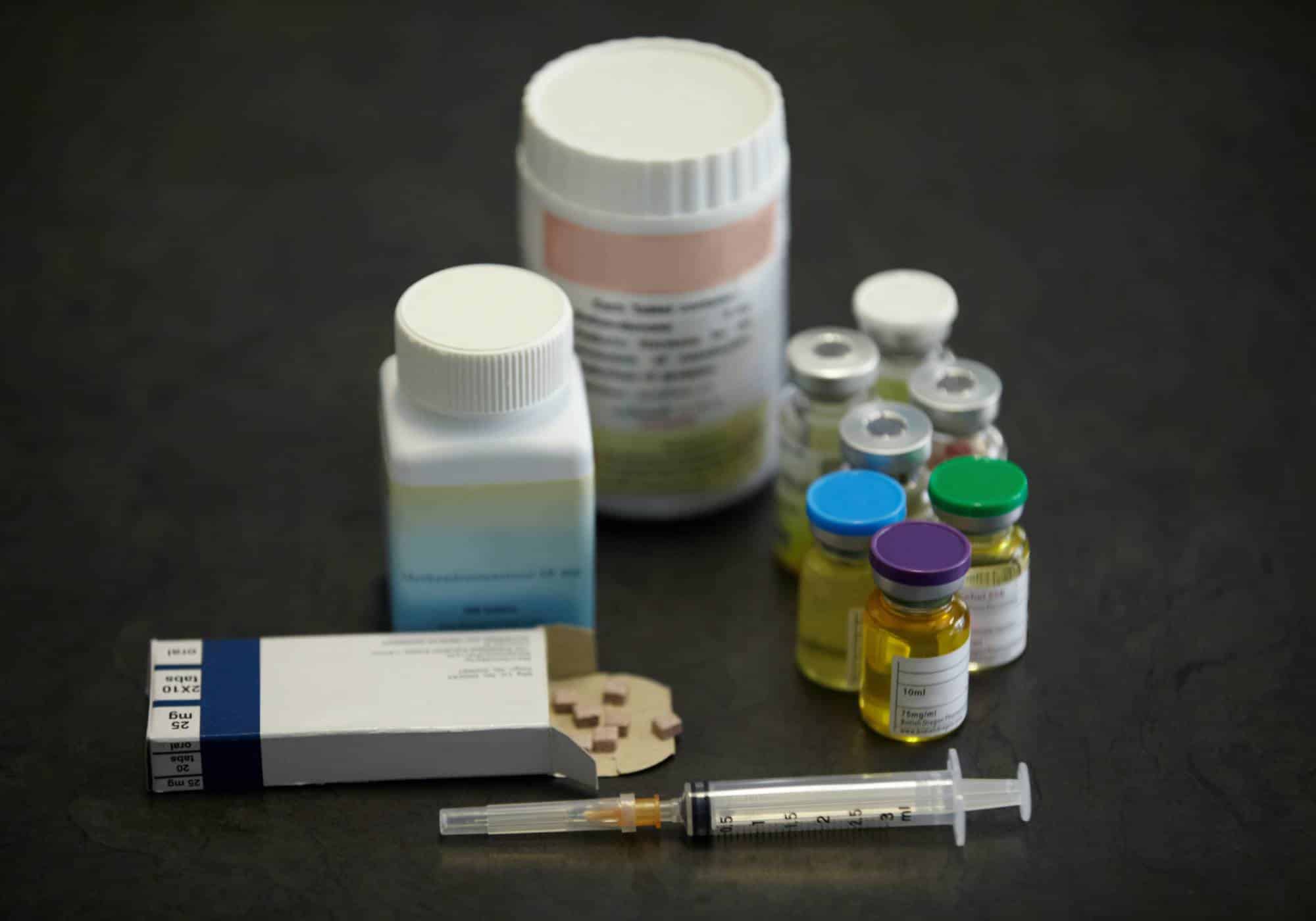Ketamine, with its half-life of approximately 2.5 hours, typically requires around 10 hours to be fully expelled from the body. However, it’s crucial to recognize that detection methods can identify ketamine’s byproducts well beyond this period. Consequently, despite ketamine’s transient effects, screenings for employment or legal matters may reveal traces of the drug or its metabolites lingering in your system for days, or in some cases, weeks after initial use. This extended detectability underscores the importance of considering the longevity of ketamine’s metabolites in the body when facing potential drug tests.
How Long Does Ketamine Stay In Your System?
The duration ketamine remains in your system varies across different bodily components, with detection times fluctuating based on the amount consumed:
- Urine: Ketamine and its metabolite, norketamine, can linger in urine from a few days to several weeks post-use, influenced by the dosage consumed. Higher doses of ketamine may persist in urine for an extended period compared to lower doses.
- Blood: Though less commonly tested, ketamine transitions from the bloodstream to body tissues within approximately 2.5 hours, suggesting a similar timeframe for its detectability in blood tests.
- Hair: Detection of ketamine in hair starts about seven to 10 days following intake and remains detectable for up to 90 days, offering a long-term indication of use.
- Saliva: In saliva, ketamine’s presence can be detected for up to 48 hours after consumption.
- Breast Milk: While data is limited, ketamine’s presence in breast milk has been acknowledged. Due to uncertain impacts on breastfed infants, including potential sedation and feeding effects, it’s advised to avoid ketamine during breastfeeding. If necessary, the infant should be closely observed for any adverse effects.
What is Ketamine?
Ketamine, used medically for anesthesia and pain relief, is notable for its rapid effects and short-lived action. It’s recently gained attention for treating severe depression and suicidal thoughts. However, its hallucinogenic qualities have led to recreational misuse under names like K, special K, and cat tranquilizer, often leading to a detached, dream-like state. Despite strict regulation, illegal ketamine frequently originates from theft, especially from veterinary sources. Available in both liquid and powder forms, it’s abused in several ways, including being added to drinks, snorted, or smoked. The DEA highlights its popularity in both liquid and powdered forms for illicit use.
What is Ketamine’s Half-Life?
The concept of half-life is pivotal in understanding a drug’s duration in the body. It’s defined as the time required for half the quantity of a drug to be expelled from the system. This measure is crucial for medical professionals to estimate the drug’s active presence within the body. For ketamine, the half-life is approximately 2.5 hours, indicating that after this period, only half of the initial dose remains in the system. However, clearing the remaining half takes longer due to the body’s need to metabolize and then eliminate the substance. Therefore, the complete clearance of ketamine extends beyond merely twice its half-life, averaging about 10 hours for the entire drug to be processed and removed from the body.
Factors That Effect How Long Ketamine Stays in Your System
The duration ketamine remains in an individual’s system can vary widely, influenced by several personal factors including age, body composition, genetic makeup, liver functionality, and overall health condition. Typically, younger, healthier individuals may process and expel ketamine more rapidly than older adults.
Hydration levels also significantly affect the excretion of ketamine, primarily eliminated through urine. Hence, individuals who maintain proper hydration are likely to clear the drug from their system more swiftly. Additionally, an individual’s metabolic rate plays a crucial role; those with a higher metabolism will generally process and eliminate substances like ketamine at a faster pace.
How Long is Ketamine Detectable in Tests?
Ketamine’s detectability in drug screenings varies, and while it isn’t included in standard drug tests, specialized tests for ketamine can be requested by healthcare providers or employers if usage is suspected. These specific tests can identify ketamine in various samples, including urine, blood, saliva, and hair.
The key point to understand is that ketamine, despite typically clearing from the body within approximately 10 hours, can still be traced through metabolites detectable long after initial use. This means you could potentially yield a positive result for ketamine on certain tests for an extended period following exposure.
Typically, ketamine is detectable in:
- Saliva Drug Test: Saliva for up to 24 hours
- Blood Drug Test: Blood for 1 to 3 days
- Urine Drug Test: Urine for up to 14 days
- Hair Drug Test: Hair for a duration exceeding one month
However, these timelines are approximate and may differ based on individual factors such as metabolism, frequency of use, and the amount consumed.
Signs of Ketamine Addiction
Identifying ketamine addiction is vital for seeking timely help.
Signs and Symptoms of ketamine addiction include:
- Regular ketamine consumption.
- Failed efforts to cease or minimize use.
- Withdrawal discomfort when abstaining.
- Memory lapses during use.
- Illegal activities to acquire ketamine.
- Withdrawal from social interactions.
- Mixing ketamine with other drugs to enhance effects.
- Experiencing vivid hallucinations.
- Cognitive challenges and difficulty in making clear judgments.
- Loss of coordination and motor function.
- Distorted sense of time and trouble discerning reality.
- Increased anxiety and depressive episodes.
- Emergence of paranoid thinking.
These symptoms are warning signs of a serious reliance on ketamine, emphasizing the urgency of seeking specialized care and support. For assistance with overcoming ketamine addiction in Atlanta, GA, contact Hope Harbor Wellness at 678-672-6731 and start on the path to recovery.
Ketamine Addiction Treatment at Hope Harbor Wellness
Hope Harbor Wellness stands at the forefront of offering comprehensive ketamine addiction treatment, focusing on a holistic approach that encompasses both the mind and body. Recognizing the complexities of ketamine addiction, which can be just as perilous as addictions to well-known substances like cocaine or fentanyl, we emphasize the importance of evidence-based treatment strategies delivered with compassion and understanding.
The challenge with ketamine extends beyond its addictive potential; it often involves risky combinations with other drugs or imprecise dosing methods, heightening the danger of overdose.
For individuals struggling with ketamine addiction, seeking help from a dedicated facility like Hope Harbor Wellness is a critical step on the journey to recovery. Our team is committed to providing personalized care that addresses the multifaceted nature of addiction, ensuring a path towards lasting wellness.
To learn more about our ketamine addiction treatment in Atlanta, GA and how we can support you or your loved one in achieving sobriety, please reach out to us at 678-672-6731 or via our online contact form. At Hope Harbor Wellness, your journey towards a life free from addiction begins with us.












